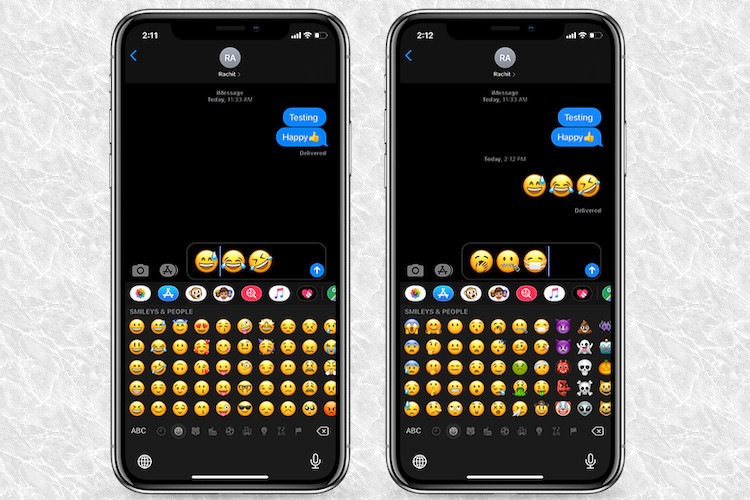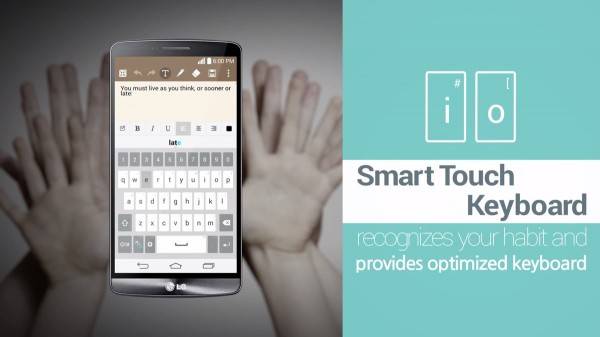

- #Android keyboard predictive text password how to
- #Android keyboard predictive text password full
- #Android keyboard predictive text password for android
- #Android keyboard predictive text password android
- #Android keyboard predictive text password code
Note: The below steps are applied to Samsung Galaxy devices running on Android 9.0 (Pie) and Android 10.
#Android keyboard predictive text password how to
Here’s how to clear the keyboard history or cache on Samsung Galaxy s9, S10, Note 9, and later Galaxy devices. There are two ways to clear keyboard history on Android (Samsung).īecause there are numerous Android devices, and to clear the keyboard history on Android may differ from Samsung to Huawei, LG, OnePlus, Google Pixel, and many other Chinese Android smartphones. Well, if you have decided to completely clear your Android keyboard history then clearing keyboard history on Android isn’t much complicated, one of the great things about Android is that it’s so customizable. How To Clear the Keyboard History On Samsung Galaxy When a keyboard offers words, this occurs. On December 27th, 2019, Twitter user kovovevo tweeted, 'type In 2019, Ill and let your phones keyboard finish your new years resolution for you.' The tweet received more than 150 retweets. For instance, when using your device, when someone uses your device, password, and e-mail, you do not want to show someone else your password. In 2019, Ill In 2019, Ill is a predictive text phrasal template that requires participants type 'In 2019, Ill' and let their phones auto-complete feature finish the remainder of the sentence.

Unlike many of its most popular rivals, SwiftKey provides an extensive guide to disabling and managing data collection and word prediction.However, predictive text or words though sometimes have their own implications, but often they can also be helpful, interrupt how you’d lose your passcode or secret message. It collects data to improve its predictive features by defaults.
#Android keyboard predictive text password for android
It’s a swiping or “gliding” keyboard for Android and iOS, SwiftKey was bought by Microsoft in 2016. Note: If you don’t want to show predictive words anymore you can switch the predictive text option off. Disable these options to make Gboard more privacy-friendly on AndroidĪ closed source keyboard that’s very popular.
#Android keyboard predictive text password full
IOS users should go to their keyboards settings and turn off the “Allow Full Access” option. You can disable this by accessing the virtual keyboard’s advanced settings via the Languages & input menu on Android, and disabling Advanced usage statistics, personalisations, and the “Improve voice and typing for everyone” option. It’s great to use, but sends snippets of your input back to Google by default. The standard Google keyboard allows entry via tapping, swiping your finger between letters and voice typing. This is closed source and available for Android and iOS. With data collection enabled, it uses “ differential privacy” (PDF link) to add “statistical noise” to the data it sends back for analysis, intended to make it harder to identify you from the snippets that go back to Apple for analysis. The default iOS keyboard Shares information with Apple if Share iPhone Analytics is enabled. Whether you prefer privacy or value the extra quality-of-life features that that come with more intrusive apps that use human contributors and machine learning to improve their predictive text suggestions, it’s important to know the reputation and security habits of the keyboard app you use and company behind it.
#Android keyboard predictive text password code
Open-source keyboards don’t have such unexpected little surprises built into them, as their code available to be publicly examined and audited by any interested party, but don’t have the same features as their more intrusive counterparts. The most egregious leaks and privacy violations get dealt with once revealed, but it doesn’t speak well to the trustworthiness of major tech firms when it comes to your private communication.Īnd if privacy is matter of personal safety, a leaky keyboard can be exploited by bad actors and hostile governments to render the encryption of even the most secure messaging apps irrelevant. That’s fine if you don’t mind contributing to Google or Microsoft’s pool of data (and potentially having snippets of your messages seen or heard by a third-party contractor working on behalf of those companies).īut some phone keyboards like SwiftKey have previously leaked data include email addresses to other users in autocomplete suggestions, while the Kika Keyboard app was caught engaging in advertising credit fraud.


 0 kommentar(er)
0 kommentar(er)
